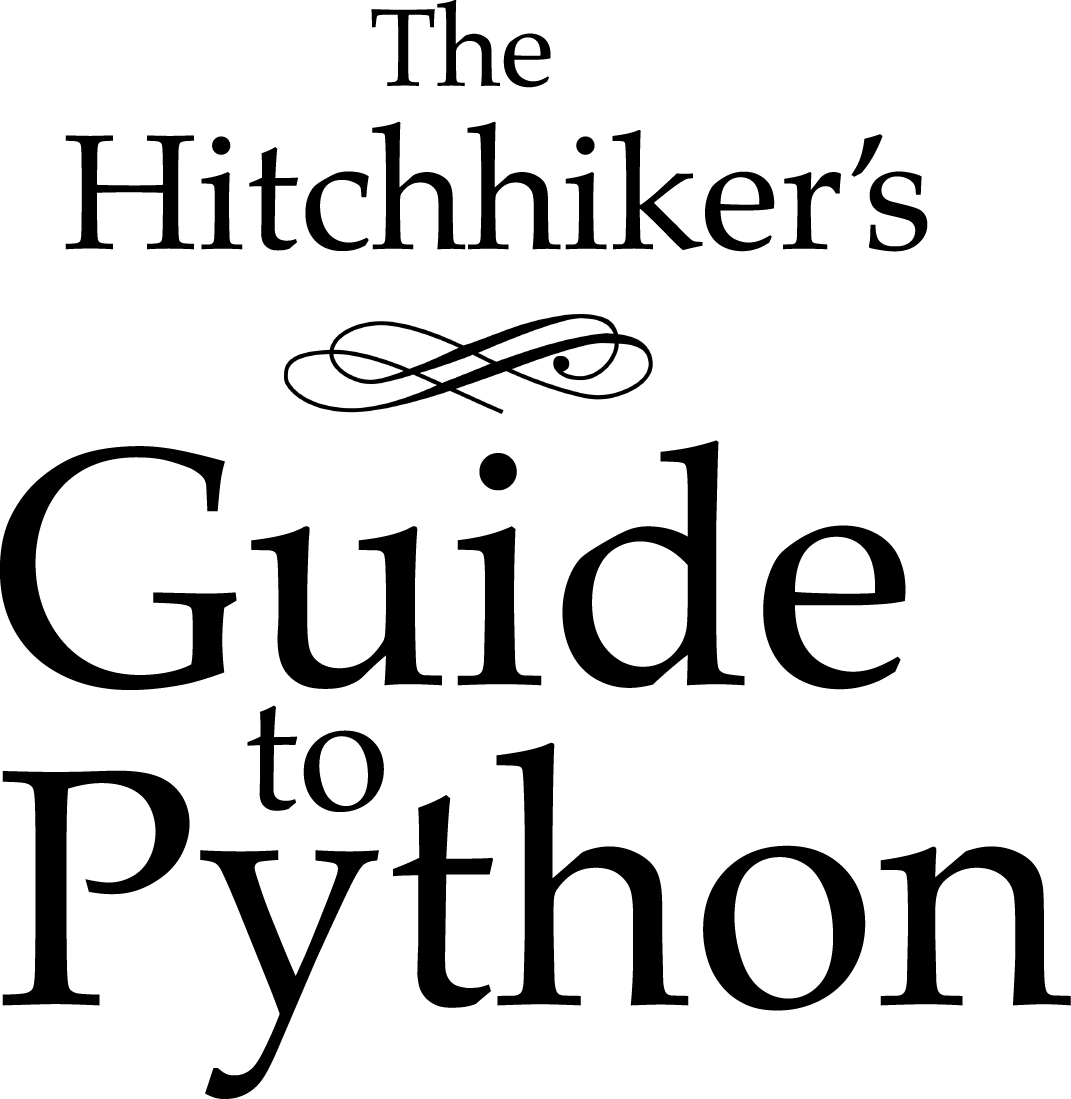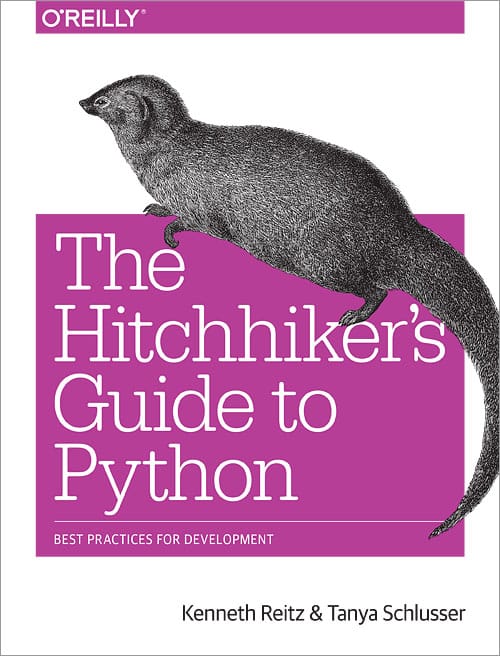Learning Python¶

Beginner¶
The Python Tutorial¶
This is the official tutorial. It covers all the basics, and offers a tour of the language and the standard library. Recommended for those who need a quick-start guide to the language.
Real Python¶
Real Python is a repository of free and in-depth Python tutorials created by a diverse team of professional Python developers. At Real Python you can learn all things Python from the ground up. Everything from the absolute basics of Python, to web development and web scraping, to data visualization, and beyond.
Python Basics¶
pythonbasics.org is an introductory tutorial for beginners. The tutorial includes exercises. It covers the basics and there are also in-depth lessons like object oriented programming and regular expressions.
Python for Beginners¶
thepythonguru.com is a tutorial focused on beginner programmers. It covers many Python concepts in depth. It also teaches you some advanced constructs of Python like lambda expressions and regular expressions. And last it finishes off with the tutorial “How to access MySQL db using Python”
Learn Python Interactive Tutorial¶
Learnpython.org is an easy non-intimidating way to get introduced to Python. The website takes the same approach used on the popular Try Ruby website. It has an interactive Python interpreter built into the site that allows you to go through the lessons without having to install Python locally.
Python for You and Me¶
If you want a more traditional book, Python For You and Me is an excellent resource for learning all aspects of the language.
Learn Python Step by Step¶
Techbeamers.com provides step-by-step tutorials to teach Python. Each tutorial is supplemented with logically added coding snippets and equips with a follow-up quiz on the subject learned. There is a section for Python interview questions to help job seekers. You can also read essential Python tips and learn best coding practices for writing quality code. Here, you’ll get the right platform to learn Python quickly.
Online Python Tutor¶
Online Python Tutor gives you a visual step-by-step representation of how your program runs. Python Tutor helps people overcome a fundamental barrier to learning programming by understanding what happens as the computer executes each line of a program’s source code.
Invent Your Own Computer Games with Python¶
This beginner’s book is for those with no programming experience at all. Each chapter has the source code to a small game, using these example programs to demonstrate programming concepts to give the reader an idea of what programs “look like”.
Hacking Secret Ciphers with Python¶
This book teaches Python programming and basic cryptography for absolute beginners. The chapters provide the source code for various ciphers, as well as programs that can break them.
Learn Python the Hard Way¶
This is an excellent beginner programmer’s guide to Python. It covers “hello world” from the console to the web.
Crash into Python¶
Also known as Python for Programmers with 3 Hours, this guide gives experienced developers from other languages a crash course on Python.
Dive Into Python 3¶
Dive Into Python 3 is a good book for those ready to jump in to Python 3. It’s a good read if you are moving from Python 2 to 3 or if you already have some experience programming in another language.
Think Python: How to Think Like a Computer Scientist¶
Think Python attempts to give an introduction to basic concepts in computer science through the use of the Python language. The focus was to create a book with plenty of exercises, minimal jargon, and a section in each chapter devoted to the subject of debugging.
While exploring the various features available in the Python language the author weaves in various design patterns and best practices.
The book also includes several case studies which have the reader explore the topics discussed in the book in greater detail by applying those topics to real-world examples. Case studies include assignments in GUI programming and Markov Analysis.
Python Koans¶
Python Koans is a port of Edgecase’s Ruby Koans. It uses a test-driven approach to provide an interactive tutorial teaching basic Python concepts. By fixing assertion statements that fail in a test script, this provides sequential steps to learning Python.
For those used to languages and figuring out puzzles on their own, this can be a fun, attractive option. For those new to Python and programming, having an additional resource or reference will be helpful.
More information about test driven development can be found at these resources:
A Byte of Python¶
A free introductory book that teaches Python at the beginner level, it assumes no previous programming experience.
Computer Science Path on Codecademy¶
A Codecademy course for the absolute Python beginner. This free and interactive course provides and teaches the basics (and beyond) of Python programming while testing the user’s knowledge in between progress. This course also features a built-in interpreter for receiving instant feedback on your learning.
Code the blocks¶
Code the blocks provides free and interactive Python tutorials for beginners. It combines Python programming with a 3D environment where you “place blocks” and construct structures. The tutorials teach you how to use Python to create progressively more elaborate 3D structures, making the process of learning Python fun and engaging.
Intermediate¶
Python Tricks: The Book¶
Discover Python’s best practices with simple examples and start writing even more beautiful + Pythonic code. Python Tricks: The Book shows you exactly how.
You’ll master intermediate and advanced-level features in Python with practical examples and a clear narrative.
Effective Python¶
This book contains 59 specific ways to improve writing Pythonic code. At 227 pages, it is a very brief overview of some of the most common adaptations programmers need to make to become efficient intermediate level Python programmers.
Advanced¶
Pro Python¶
This book is for intermediate to advanced Python programmers who are looking to understand how and why Python works the way it does and how they can take their code to the next level.
Expert Python Programming¶
Expert Python Programming deals with best practices in programming Python and is focused on the more advanced crowd.
It starts with topics like decorators (with caching, proxy, and context manager case studies), method resolution order, using super() and meta-programming, and general PEP 8 best practices.
It has a detailed, multi-chapter case study on writing and releasing a package and eventually an application, including a chapter on using zc.buildout. Later chapters detail best practices such as writing documentation, test-driven development, version control, optimization, and profiling.
A Guide to Python’s Magic Methods¶
This is a collection of blog posts by Rafe Kettler which explain ‘magic methods’ in Python. Magic methods are surrounded by double underscores (i.e. __init__) and can make classes and objects behave in different and magical ways.
Note
Rafekettler.com is currently down; you can go to their GitHub version directly. Here you can find a PDF version: A Guide to Python’s Magic Methods (repo on GitHub)
For Engineers and Scientists¶
A Primer on Scientific Programming with Python¶
A Primer on Scientific Programming with Python, written by Hans Petter Langtangen, mainly covers Python’s usage in the scientific field. In the book, examples are chosen from mathematics and the natural sciences.
Numerical Methods in Engineering with Python¶
Numerical Methods in Engineering with Python, written by Jaan Kiusalaas, puts the emphasis on numerical methods and how to implement them in Python.
Miscellaneous Topics¶
Problem Solving with Algorithms and Data Structures¶
Problem Solving with Algorithms and Data Structures covers a range of data structures and algorithms. All concepts are illustrated with Python code along with interactive samples that can be run directly in the browser.
Programming Collective Intelligence¶
Programming Collective Intelligence introduces a wide array of basic machine learning and data mining methods. The exposition is not very mathematically formal, but rather focuses on explaining the underlying intuition and shows how to implement the algorithms in Python.
Transforming Code into Beautiful, Idiomatic Python¶
Transforming Code into Beautiful, Idiomatic Python is a video by Raymond Hettinger. Learn to take better advantage of Python’s best features and improve existing code through a series of code transformations: “When you see this, do that instead.”
Fullstack Python¶
Fullstack Python offers a complete top-to-bottom resource for web development using Python.
From setting up the web server, to designing the front-end, choosing a database, optimizing/scaling, etc.
As the name suggests, it covers everything you need to build and run a complete web app from scratch.
PythonistaCafe¶
PythonistaCafe is an invite-only, online community of Python and software development enthusiasts helping each other succeed and grow. Think of it as a club of mutual improvement for Pythonistas where a broad range of programming questions, career advice, and other topics are discussed every day.
References¶
Python in a Nutshell¶
Python in a Nutshell, written by Alex Martelli, covers most cross-platform Python usage, from its syntax to built-in libraries to advanced topics such as writing C extensions.
The Python Language Reference¶
This is Python’s reference manual. It covers the syntax and the core semantics of the language.
Python Essential Reference¶
Python Essential Reference, written by David Beazley, is the definitive reference guide to Python. It concisely explains both the core language and the most essential parts of the standard library. It covers Python 3 and 2.6 versions.
Python Pocket Reference¶
Python Pocket Reference, written by Mark Lutz, is an easy to use reference to the core language, with descriptions of commonly used modules and toolkits. It covers Python 3 and 2.6 versions.
Python Cookbook¶
Python Cookbook, written by David Beazley and Brian K. Jones, is packed with practical recipes. This book covers the core Python language as well as tasks common to a wide variety of application domains.
Writing Idiomatic Python¶
Writing Idiomatic Python, written by Jeff Knupp, contains the most common and important Python idioms in a format that maximizes identification and understanding. Each idiom is presented as a recommendation of a way to write some commonly used piece of code, followed by an explanation of why the idiom is important. It also contains two code samples for each idiom: the “Harmful” way to write it and the “Idiomatic” way.

